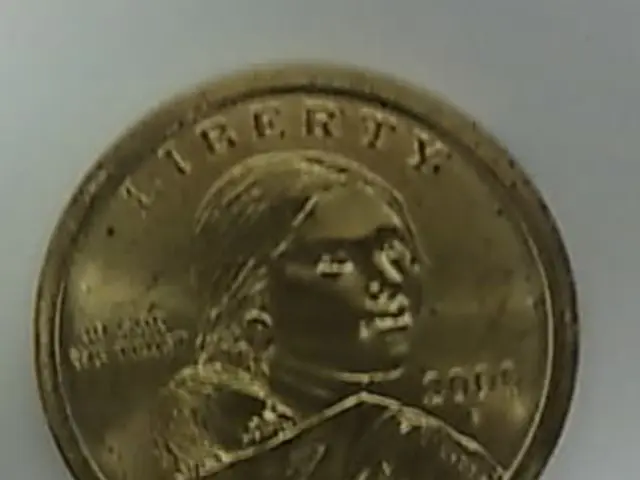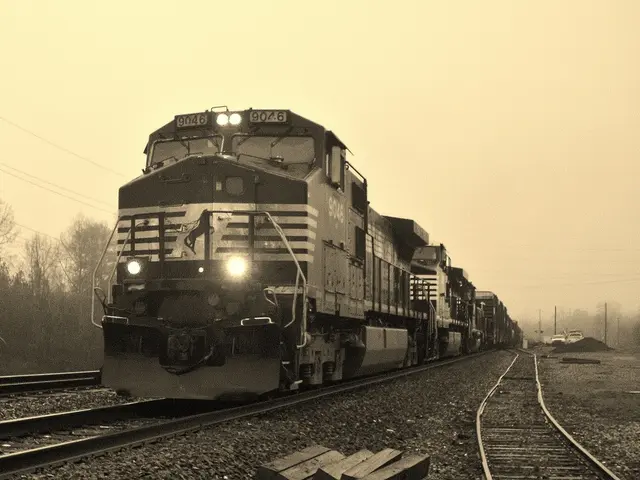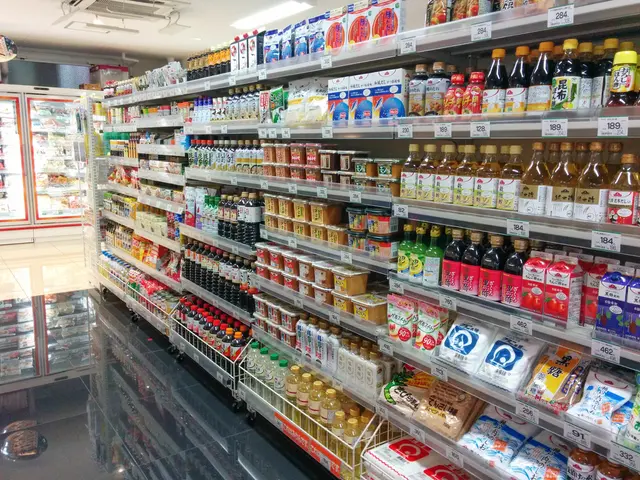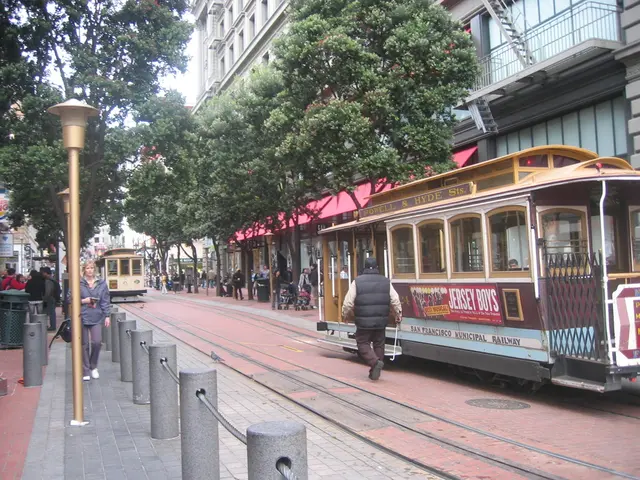Boeing, Rolls-Royce, and Raw Materials: Trump and Starmer Celebrate Groundbreaking Trade Pact
Trump and Starmer commemorate inaugural significant tariff agreement
Chat Discuss Share Follow Remind Me
In a celebratory press conference, US President Donald Trump announced a significant trade agreement with Britain. Both nations are set to reduce tariffs on a variety of goods, with UK importing aircraft from Boeing and the US allowing the import of aircraft parts from Rolls-Royce.
Trump expressed optimism about this deal, commenting: "It's a big deal, a very big deal." He added that his tariff policy has led to this success, and he plans to pursue similar agreements with other regions, including the EU, despite stiff competition.
UK Prime Minister Keir Starmer may find validation in his non-confrontational approach toward the US. "This is a truly remarkable, historic day," Starmer said during the press conference.
Although Trump praised the agreement as comprehensive, sources from the British government clarified that it was not a traditional free trade agreement. Instead, this deal focuses on specific areas, acting as a foundation for future negotiations.
Economy Automobiles, Steel, Food: Details on Trump's Trade Deal with BritainPreviously, Britain, like other nations, faced 10% tariffs on most of their exported goods. Furthermore, tariffs on steel and aluminium, automobiles and auto parts were set at a hefty 25%. These tariffs will now decrease to 10% for a quota of 100,000 vehicles, as per US Trade Minister Howard Lutnick. Rolls-Royce aircraft parts will enter US duty-free. In return, Britain will import Boeing aircraft worth around $10 billion, roughly $8.9 billion. Additionally, tariffs on UK goods from the US will decrease from 5.1% to 1.8%, while tariffs on British steel and aluminum will be eliminated.
Trade between the US and Britain amounted to roughly $370 billion last year. Services, accounting for approximately 70% of all British exports to the US, were exempt from tariffs.
Economy Trade Deal Announcement: Trump to Unveil Agreement with BritainThis is the second major trade agreement announcement for Starmer in quick succession. On Tuesday, he and Indian Prime Minister Narendra Modi announced a comprehensive agreement after three years of negotiations, expected to boost bilateral trade by an additional £25.5 billion, or around $30 billion, by 2040. This agreement is considered the most significant trade deal since the UK's departure from the EU. The current British government is attempting to secure deals with major economic powers, like the US, China, and the EU, without upsetting any of them excessively.
Political Scene Starmer and Trump: Losing Popularity Despite Trade SuccessesThe EU has threatened Trump with blanket tariffs of 25% on US exports worth nearly $100 billion if a deal is not reached by July. Despite an offer from Brussels to mutually lift all tariffs on industrial goods, the Trump administration has yet to engage. Bible-thick lists of potential products subject to EU tariffs, such as automobiles, agriculture products, and machinery, are now being prepared for discussion by both parties.
Economy 'Ludicrous': Trump's Movie Tariff Plans Face Serious SkepticismTrump intends to resolve alleged trade imbalances and relocate production to the US through tariffs. Meanwhile, the revenues generated from these tariffs are supposed to partially fund his expensive tax cut promise.
Britain's Prime Minister Starmer has consistently emphasized the importance of a swift trade deal with the US. Unlike Brussels, he has chosen not to issue threats of counter-tariffs. Instead, Starmer approached Trump with a friendly offering, presenting the US President with an invitation for a state visit by King Charles III during a visit to the White House in February.
Brussels: Pursuing Confrontation
The EU Commission has revealed plans for additional tariffs on US exports valued at up to $114 billion. If negotiations with Washington do not produce results, these tariffs could be imposed on industrial and agricultural products such as cars, sweet potatoes, whiskey. Furthermore, US machinery, automotive parts, chemicals, and rum and wine could also face additional tariffs.
The Commission is also considering export restrictions worth $5.8 billion for particular goods, including steel scrap and chemical products, if an agreement with the US is not reached.
Economy High-Level Talks: USA, Switzerland and China Announce Tariff DiscussionsReaching an agreement with Trump represents a symbolic success for Starmer. economically more critical is an agreement with the EU, which is expected to make substantial progress at the May 19 London summit with EU Commission President Ursula von der Leyen and EU Council President António Costa.
An Important Caveat: Maintaining High Food Standards
There are concerns about a dynamic agreement in the area of animal health and food standards, potentially complicating matters due to potential concessions to the US. However, a British government spokesperson ensured the public that British food standards will not be compromised by the agreement with the US. The EU remains the more significant trading partner for the UK, with nearly half of British goods exports heading there, compared to 16% destined for the US, the main target market.
Sources: ntv.de, as/dpa/rts
- USA
- UK
- Donald Trump
- Keir Starmer
- Tariffs
- EU
Insights derived from Enrichment Data:
- Tariff Reduction: The agreement with the US has led to reduced tariffs on vehicles, auto components, steel, and aluminum for Britain.
- Products Involved: American exports impacted by the trade deal include ethanol, agriculture products (such as beef), and machinery. British imports include Boeing aircraft, while steel and aluminum will remain subject to tariffs but are subject to negotiation.
- Possible Impact: The agreement is estimated to create $5 billion worth of new export opportunities for US farmers, ranchers, and manufacturers. The deal is expected to benefit various industries in both the US and UK, including automotive and steel manufacturing. Despite the larger scale of trade with the EU, trade between the US and UK in 2024 was approximately $148 billion, a small fraction of total US trade globally.
- The employment policy of both the US and UK may see a shift as a result of the recent trade pact, with fewer tariffs on goods such as aircraft (from Boeing in the US to Rolls-Royce in the UK) potentially leading to increased employment in the aerospace sector.
- The political discourse surrounding tariffs and international trade has been heightened, with the US-UK deal serving as a case study for future negotiations with other regions, including the EU, as mentioned by President Trump.
- Britons have been kept updated on these developments through various channels, including social media platforms like WhatsApp, making it easier for the general public to stay informed about the changing employment policy and general-news related to the trade agreement.
- As the US and UK move forward with their agreement, other nations, such as the EU, are preparing their own strategies, possibly involving increased tariffs on specific goods, in response to perceived trade imbalances that they seek to address in their own employment and trade policies.








